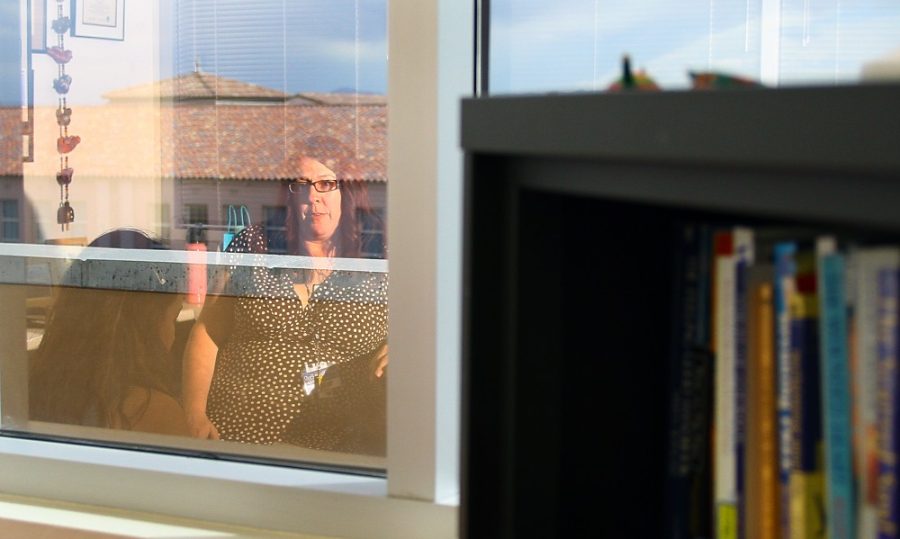Dr. Kathleen Young is the new staff psychologist at Counseling and Psychological Services and the coordinator of clinical services at the OASIS Program, a violence and sexual assault prevention program at Campus Health Service.
Daily Wildcat: Where are you from, and why did you decide to come to the UA?
Young: Although I’m not from Chicago, I was there for quite a long time. I had an internship year here in Tucson at the University of Arizona Health Science(s) Center way back when at the end of my doctoral program. I really loved Tucson, and I knew it was some place I’d like to relocate. There was an advertisement for a position to help victims of sexual assault and violence, and it seemed like the perfect job and place were coming together. I hope to be here indefinitely, and I’m planning to make a home at both the UA and Tucson.
What do you specialize in, and what sort of things can students see you for?
I specialize in relationship violence and trauma as a broad category including survivors of childhood abuse and sexual assault. Being housed under CAPS, I also do general counseling. In addition to students coming in for clinical services, I help with outreach and education with anybody on campus. I enjoy what I do very much.
What inspired you to specialize in trauma?
When I did my specialized externship training programs, I recognized unresolved trauma was a common issue people were coming in with. Way back then, there was not a lot of formal training being done in doctoral programs on recognizing and treating trauma. After graduating, I did a lot of this continuing education on my own.
What do you hope to bring to the UA community, and what do you hope the UA community can bring to you?
I am happy to bring my 20 years of experience working with trauma and my passion for helping folks recover, as well as working to prevent violence. I have done quite a bit of work helping college-age individuals. I’m sure I will learn all kinds of things by being here in a rich, diverse environment. I feel like I already am.
What do you think are the most common problems for college-age students?
There are certainly lots of transition and adjustments issues. Unfortunately, sexual assault is a big issue in this age group, and it’s important to address. Many students haven’t learned what is good in a relationship for them, and this is a time to start practicing how to have a healthy relationship. Substance abuse issues are also a really big deal.
If you could give students one piece of advice, what would it be?
Take this time to get to know more about yourself outside of just academics. Students should start thinking about their life goals and who they are as people, as well as their relationships.









